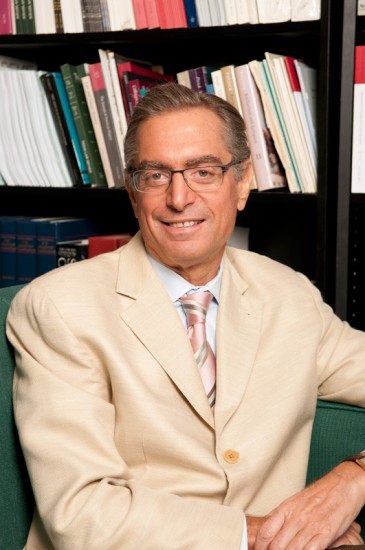
David Rabban, Dahr Jamail, Randall Hage Jamail and Robert Lee Jamail Regents Chair and University Distinguished Teaching Professor
Professor David Rabban, who holds the Dahr Jamail, Randall Hage Jamail, and Robert Lee Jamail Regents Chair in Law at the University of Texas School of Law, has just published a new book, Law’s History: American Legal Thought and the Transatlantic Turn to History. The book is now available from Cambridge University Press.
“In the decades following the Civil War, the founding generation of professional legal scholars in the United States drew from the evolutionary social thought that pervaded Western intellectual life on both sides of the Atlantic,” Rabban said about his book. “Their historical analysis of law as an inductive science rejected deductive theories and supported moderate legal reform, conclusions that challenge conventional accounts of legal formalism. Covering major American legal thinkers from the Civil War to the present, the book combines transatlantic intellectual history, legal history, the history of legal thought, historiography, jurisprudence, constitutional theory, and the history of higher education.”
Law’s History has received advance praise from leading legal scholars. Robert W. Gordon of Stanford Law School called it “a pioneering study of American historical jurisprudence in the late nineteenth century. It is comprehensive, meticulous, and deeply learned. It is cosmopolitan, placing the Americans among their European predecessors and counterparts. And it is eye-opening: the standard picture of this era’s legal scholars as political reactionaries and abstract deductive ‘formalists’ cannot possibly survive this splendid and important book.” Morton Horwitz of Harvard Law School described the book as “the first complete account of American legal thought from the rise of Classical Legal Thought in the 1870s to the Sociological Jurisprudence of the pre-World War I era. Though it offers many illuminating challenges to conventional wisdom in the field, the book’s first goal is to overthrow the still dominant Holmesian picture of Classical American legal thinkers as unhistorical prisoners of logic. Rabban shows instead the pervasive influence of historical consciousness on leading American legal thinkers, many of them influenced by Darwinian evolutionary ideas.”
Rabban is the author of Free Speech in Its Forgotten Years, 1870-1920 (Cambridge, 1997), which received the Forkosch Prize from the Journal of the History of Ideas for “the best book in intellectual history published in 1997” and the Eli M. Oboler Award of the American Library Association for “the most significant work on intellectual freedom published in 1996 and 1997.” His many articles have appeared in the Cambridge Law Journal, Columbia Law Review, the Stanford Law Review, the Texas Law Review, the University of Chicago Law Review, the Yale Law Journal, and elsewhere. He is a member of the University of Texas Academy of Distinguished Teachers and held the first Massey Teaching Excellence Award at the Law School.
“David is one of our star scholars and teachers, and this book is one of the great achievements of his career—a major contribution to American intellectual history,” said Law School Dean Ward Farnsworth. “We couldn’t be more pleased and proud about its release.”
